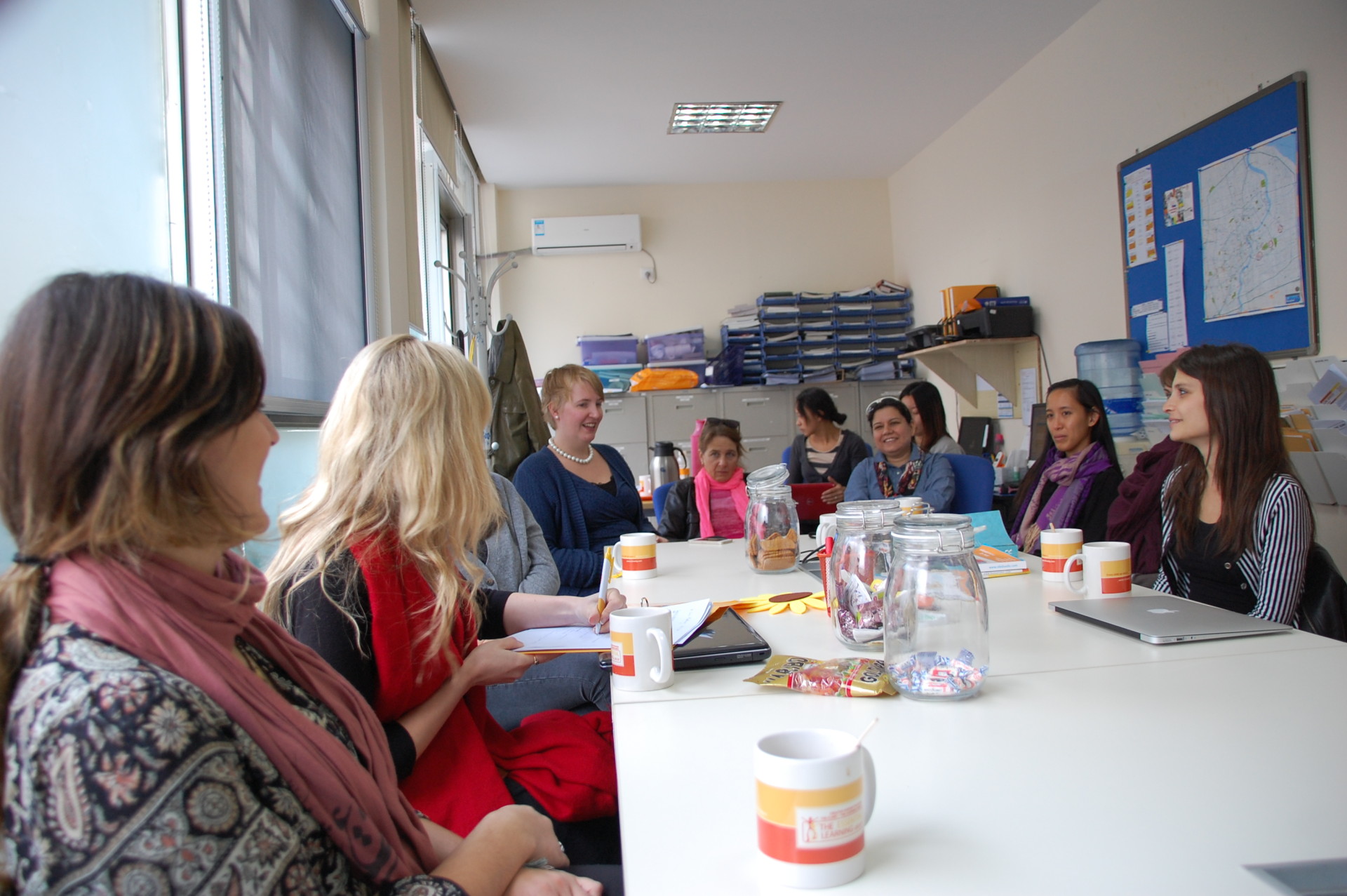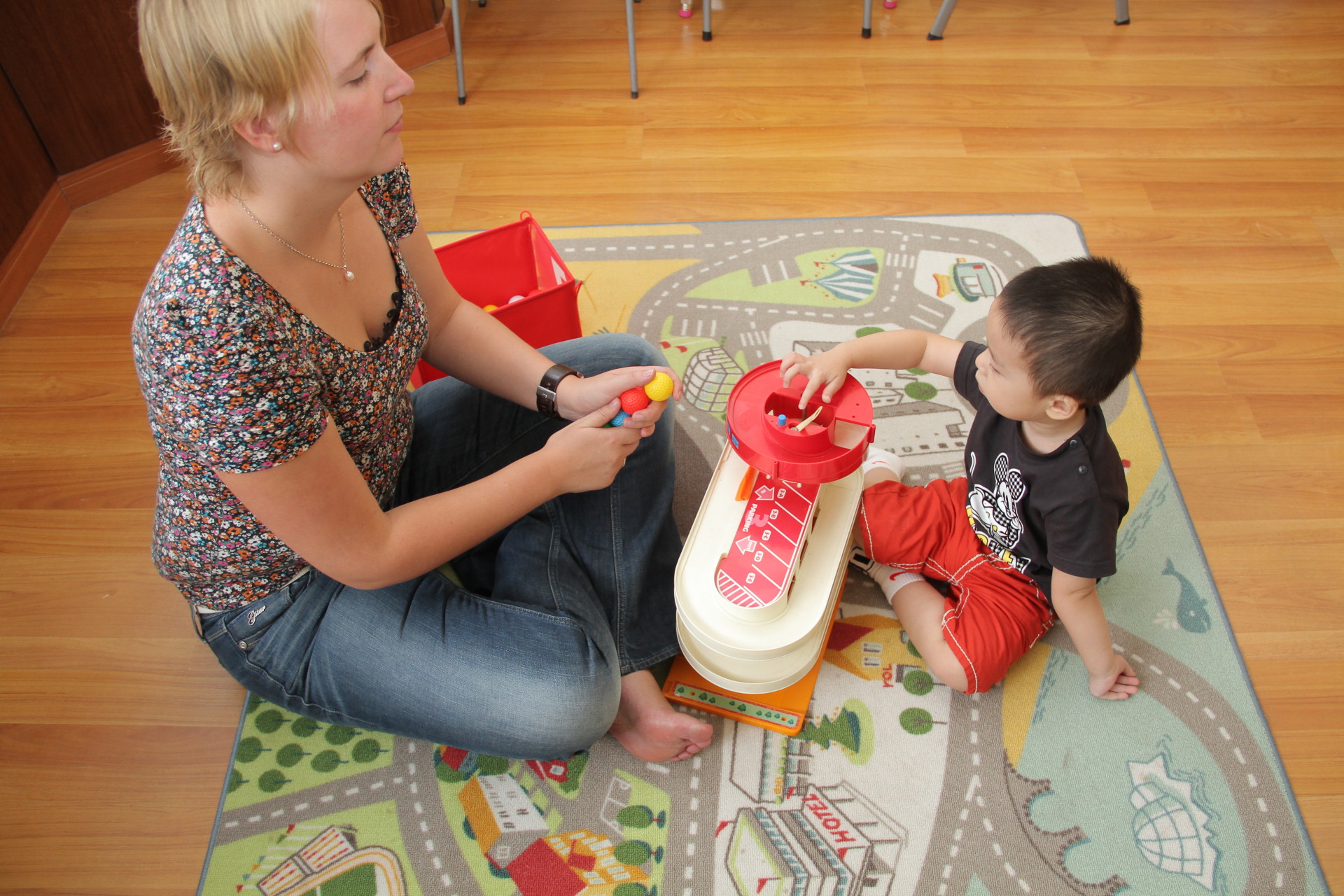By Karlijn Jacobs-de Hoon
In a few months I will be leaving Shanghai, after having lived and worked in this city for almost six years. When I joined The Essential Learning Group, its first office location in Pudong had just opened, which signaled a new direction for ELG’s Clinic services. ELG had started about five years earlier as an organization that offered a full-time therapeutic program, The Innovative Learning Center (back then called Creative Garden), for students whose needs could not be met in a mainstream local or international educational environment. The therapists and specialists working for ILC worked after hours to cater to children with mild and moderate needs who were attending international schools.
I was one of the first therapists to work only for ELG’s Clinic, and soon felt it to be a perfect fit for me: Monte and Shari Rosen, the company founders, are incredible people who support new ideas and initiatives and ELG as an organization is truly set-up as a platform to support its employees in being the best therapists or teachers they can be.
At the time I joined ELG, the Clinic was structured to support inquiries from families actively reaching out to us. Some schools were fortunate to have learning support or counsellors on board who would actively seek resources to support their students and refer to ELG for help. I also remember encountering families who were struggling to disclose their child’s diagnosis to the school because they were afraid it might have led to their child being exited.
Schools were also struggling to respond to concerns about students with needs, as they knew that they were not able to support such needs and there were only very limited options for these families in Shanghai. ELG, through The Innovative Learning Center, responded to this by expanding its offerings and creating programs for students whose families aimed to have them return to regular educational environments when behaviour or learning problems were sufficiently managed. As a therapist, I often found myself consulting with families and schools to implement strategies and resources which enabled the child to successfully continue in a regular educational environment.
When I stepped into the role of Clinic Director, one of my main goals was to align our Clinic’s efforts with those that schools were making so more students could stay in school and grow up to be happy and confident adults. When meeting with schools I learned that their experiences with service providers were very mixed. For example, parents often returned with assessment reports that were inaccurate, incomplete or without concrete recommendations that could be used in the school environment.
In response, our Clinic invested a lot of energy installing a Client Services Team to coordinate administrative elements of providing services and developing templates and Standards of Practice (on top of those that are relevant for each of our specialists within their own profession) to achieve a consistent quality level from all our specialists. As a direct result of these efforts, a number of schools in Shanghai exclusively allowed our therapists to work directly with children on their campus.
Our Clinic and its team of specialists continue to work closely together with parents, involving teachers and coordinators in schools when possible, as therapeutic interventions are most effective when everyone involved in the child’s life is working on the same goals and using the same strategies. As part of our duty of care, the Clinic team developed ELG Academy in response to frequent professional development requests from teachers and administrators. Most requests centered on how to identify students with needs, communicating with parents about this effectively, or finding and implement the support needed for these students.
In most recent years the quantity and type of inquiries has changed quite a bit: our client load still includes children with special needs and their families, but also adults who seek support for themselves, or companies and schools seeking crisis-response, Employee Assistance Programs, or related types of services. We support an increasing number of local families, and receive inquiries not only from Shanghai and surrounding cities, but other provinces in China and even other countries in Asia. In order to adequately support all these different people, we added the role of Intake Specialist, to ensure that people reaching out for help would speak to a professional from their first point of contact onwards.
I have no doubt that the Shanghai community and its needs will continue to develop in the coming years. Already we are seeing schools recruiting therapists as part of their team, making me hopeful that we will be able to collaborate and support students even more effectively. More and more resources are becoming available, allowing our team to collaborate with other providers and organizations to serve people with more complex needs, and people in need of support more effectively reach out for help (through community groups, the internet, their employer, etc.).
It is our job as a Clinic to continue to respond to all these changes and needs in the future, and I know great developments are coming. I will leave it to Ms. Fiona Yapp, our next Clinic Director, to announce these when the time comes.
For me, I am so honored and proud to have become part of the ELG family. Working for this organization, with its leaders and its team, has changed my life.
Karlijn Jacobs-De Hoon is the Clinic Director at ELG as well as a Psycho-Motor Therapist. After nearly five years, she is repatriating back to the Netherlands. Karlijn has been an instrumental leader at ELG and together with her team has vastly improved the landscape of special education services in Shanghai. She will be missed at ELG, and we wish her all the best in this new part of her life.



